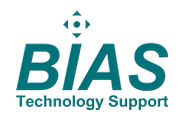WEEE
Let BIAS recycle your old equipment responsibly
WEEE Recycle
People still ask what is WEEE Recycling?
WEEE Recycling stands for Waste of Electrical and Electronic Equipment recycling, meaning anything that has a plug or needs batteries for power. Up until February 2003, there were no laws or regulations regarding the recycling of electronic equipment and devices.
According to the Environment Agency, waste electrical and electronic equipment (WEEE) is the fastest growing waste stream in the UK. The EU WEEE Directive 2012 regulates the management of electrical and electronic waste. It is applied in the UK by the Waste Electrical and Electronic Equipment (WEEE) Regulations 2013. Notice more details related to book of ra online casino spielen. Schedule 2 of the Regulations provides a list of WEEE items.
A key objective of the WEEE Regulations is to reduce the amount of WEEE that goes to landfills. This is achieved by placing an extended responsibility on producers and distributors of electrical and electronic equipment. The WEEE Regulations also place an obligation on distributors to offer to consumers a take-back system where WEEE items can be disposed of free of charge. There are two types of take-back systems, and distributors of EEE items must offer one of these schemes to their customers.
Take-Back Systems
Free in-store take-back scheme where distributors accept WEEE items from customers purchasing equivalent new items.
Distributor take-back scheme where consumers can dispose of WEEE items free of charge at designated collection facilities
Another set of associated regulations, the RoHS (Restriction of Hazardous Substances) in Electrical and Electronic Equipment Regulations seek to increase recycling of WEEE items by reducing the use of hazardous substances in such products.
Business and Commercial Waste
Businesses and other users (i.e. schools, hospitals and government agencies) of electrical and electronic goods (EEE) must ensure that all separately collected WEEE is treated and recycled. Depending on the circumstances, the cost would be borne by either the business or the producer of such goods.
Householders
Under the WEEE system, householders have a duty to dispose of their electrical waste properly. If the item of electrical or electronic equipment has a crossed out wheelie bin symbol on it, do not dispose of in your bin but instead take it to the nearest household waste recycling or civic amenity centre. Alternatively you can contact your local authority to arrange for collection, for which there will be a charge. When purchasing a new electrical item, you can arrange with the retailer to collect the old one.

